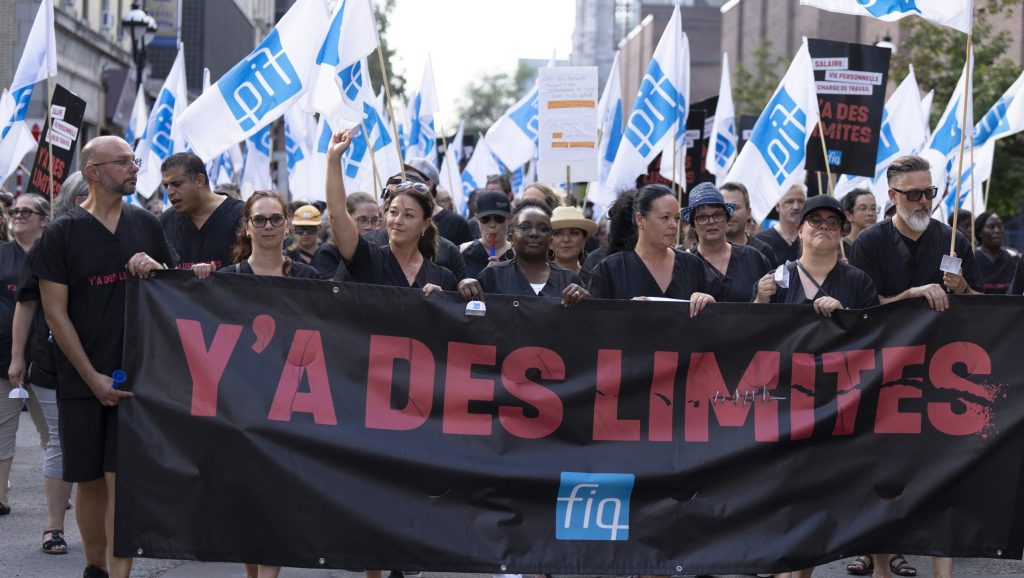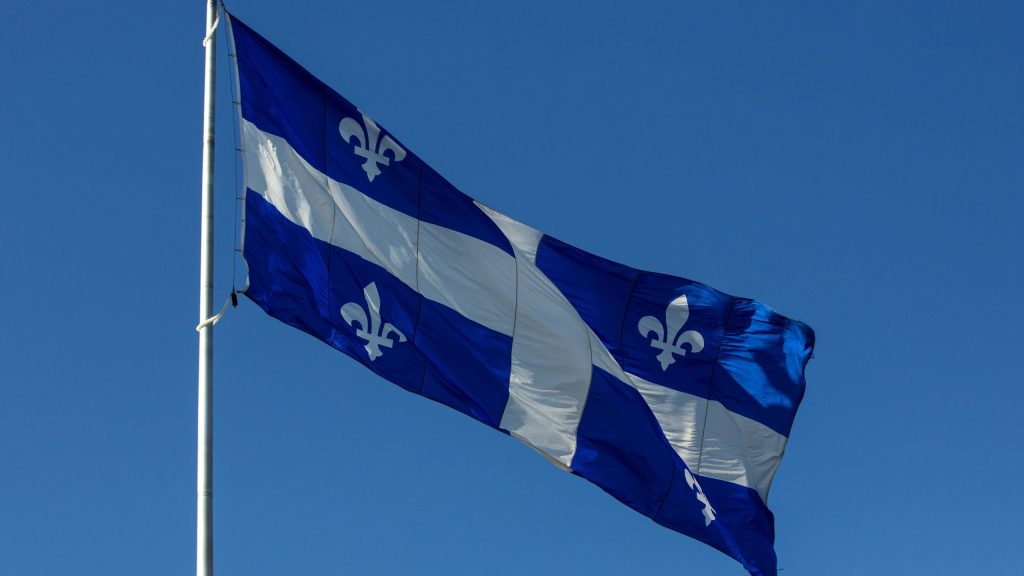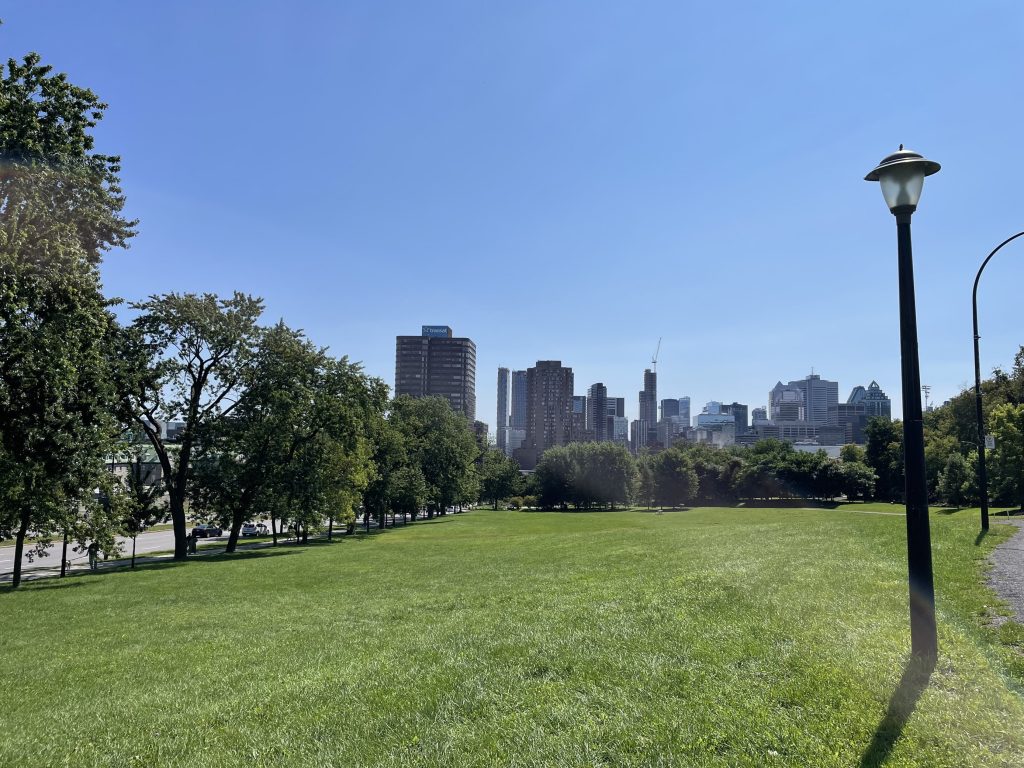Indigenous healthcare workers demand cultural safety three years after Joyce Echaquan’s death
Posted September 28, 2023 4:01 pm.
Last Updated September 28, 2023 6:39 pm.
Three years since Joyce Echaquan, a 37-year-old Atikamekw mother of seven, filmed and livestreamed hospital staff in Joliette, Que. making derogatory and racist comments toward her as she died and Indigenous healthcare workers, like Dr. Stanley Vollant – the first Indigenous surgeon in Quebec – say Joyce’s case represents what many Indigenous people have gone through while accessing health institutions
“It’s a sad day, sad day for seven children in Manawan,” said Dr. Vollant. “And it’s sad because this is still there, systemic racism still exists in the healthcare system in Quebec.”
Since her death, some say not a lot has changed in regards to the treatment towards Indigenous people.

Carol Dubé, husband of Joyce Echaquan, stands next to a photo of his deceaced wife during a memorial marking the first anniversary of the death of his wife in front of the hospital where she died in Joliette, Que. on Tuesday, September 28, 2021. The 37-year-old Atikamekw mother of seven was humiliated by hospital staff just before she died. THE CANADIAN PRESS/Paul Chiasson
“There have been small steps, but not enough,” said Dr. Vollant. “More should be done all across the province, all across the country. The same thing happened in Vancouver, Edmonton, Calgary and Winnipeg, as well as in Quebec, so I think that we should promote cultural safety, it’s a thing that we have to implement in our healthcare system.”
For those on the frontlines in Manawan, like Jolianne Ottawa, an Atikamekw nurse and the Director of Health Services for Masko-Siwin, there needs to be a level of trust between patients towards the people treating.
“Cultural safety means feeling safe when I need help, both in the healthcare system and in other systems,” she said. “To feel legitimate, to have the right that someone takes care of me when I need help, especially when I am completely vulnerable.”
RELATED:
- Three years after Joyce Echaquan’s death, a march is organized in her memory
- Joyce Echaquan: Indigenous access to health care still lacking three years later, advocate says
Dr. Vollant says it’s rare for an Indigenous person to feel totally comfortable when seeking care.
“When people from my community Pessamit are going to Baie-Comeau hospital, they are afraid to go there, they often won’t go there,” he said. “They’re going to wait until they are going to be very sick. Cancer, very advanced diabetes, very advanced with complications, they’re going to go there before they die because they are afraid to seek the the advice of non-Indigenous healthcare workers because they think they in the they won’t be treated equally.”
This isn’t something Dr. Vollant initially thought was true. Over the last years, he embarked on a 6,000-kilometre walk through Indigenous communities, hearing their stories of mistreatment in the healthcare system.

(Courtesy: Alyssia Rubertucci, CityNews image)
“I thought it was just miscommunication, but when I saw Joyce Echaquan dying in front of my eyes, I changed my mind,” he said. “I told myself I’m a traitor, traitor to my own people because I didn’t believe them because I was educated, I was trained in the non-Indigenous system.”
Quebec introduced Bill 32 in June, an act requiring health and social service institutions to adopt a more safe, welcoming and inclusive approach when interacting with Indigenous People, including mandatory training on Indigenous cultural and historical realities.
The Ministry of Health and Social Services tells CityNews in a statement:
“The MSSS is committed to continuing efforts in cultural safety and to recognizing and taking into account, in the offer of services and the experience of care, the realities and Indigenous and Inuit cultures and is determined to improve the quality and access to services. The MSSS is aware that efforts must continue, and recalls that the network is already in action.”
The province says 93.5 per cent of employees in the health and social services network have completed mandatory training to raise awareness of Indigenous realities. The network is continuing its efforts, particularly in the appointment of liaison officers and service navigators.
Regarding Bill 32, the MSSS says it’s the first province to legislate on cultural security. The MSSSS says consultations took place as part of parliamentary work for the adoption of Bill 32, and the comments received will be analyzed.
“Yes, there is consultation, but there is nothing co-created in this law,” said Ottawa. “On security they cannot speak for me or other Indigenous people.”
“There are many people who have become aware and who want to participate in this transformation,” she added. “But there also has to be a heartfelt recognition that there is a problem. Three years later, we still have a long way to go.”
For Dr. Vollant says change will likely only be seen in the next 15 years.



